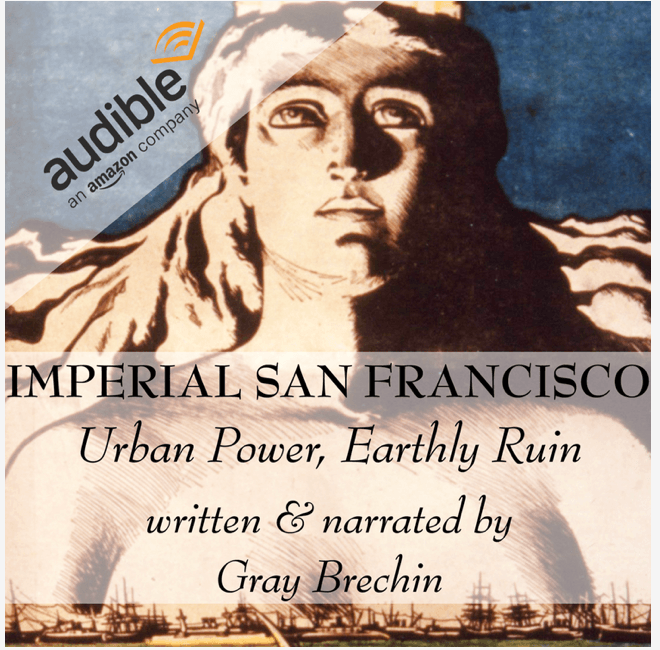The Oppenheimer Omission
 http://
http://Oppenheimer and Lawrence at the 184-inch cyclotron, University of California (Berkeley) Radiation Laboratory. Photo: US Department of Energy.
University of California administration swelled with pride after producer Christopher Nolan shot scenes for his Academy Award-winning blockbuster Oppenheimer on the Berkeley campus, but that was not always the case. In doing so Nolan gave the campus star billing in the epochal drive to build the atomic bomb before the film’s main action moved on to Los Alamos.
As an undergraduate at UC in the late 60s, I wondered why the name of one of the world’s greatest physicists who had worked there was absent, whereas that of his colleague, Ernest O. Lawrence, had been affixed to the sprawling Lawrence Radiation Laboratory and the Lawrence Hall of Science on the hill above campus as well as to the Lawrence National Laboratory in Livermore south of Berkeley. A prestigious award and endowed lectureship also bore his name which features prominently in The Centennial Record of the University of California in contrast with that of Oppenheimer who gets scant mention. My U.C. dissertation and book, Imperial San Francisco: Urban Power, Earthly Ruin, suggests that the omission of Oppenheimer was not accidental, for the “Father of the Atomic Bomb” was once an embarrassment to a university so intimately tied to its production and promotion as well as to subsequent generations of omnicidal weapons.
Nordically tall, blond, and Midwestern, Ernest Lawrence (played in the movie by Josh Hartnett) won the University’s first Nobel Prize for his co-invention with graduate student M. Stanley Livingston of the cyclotron which would lead to the Bomb. Unlike his leftish and cerebral Jewish colleague Oppenheimer — whom the brilliant physicist Hans Bethe said could make anyone, including himself, feel a fool — Lawrence put at ease the Regents and wealthy businessmen whom he needed to finance his and Livingston’s ever-larger atom-smashers. After his early death in 1958, the Regents commissioned a hagiography of Lawrence titled An American Genius and raised funds for the namesake Hall of Science adjacent to his 184-inch cyclotron where Lawrence’s team began the separation of Uranium-235 needed for “The Gadget.” When the hall was completed, curators placed the illuminated portraits of twenty-six Great Men of Science near the entrance that began with Hippocrates and culminated with Berkeley’s Nobel Laureate.
The absence of Oppenheimer from the Gallery of Greats and the shrine-like Memorial Hall once at its center was only one of several holes in the building’s historical record, for Lawrence’s work on the atomic bomb was given little  mention and none was given to his enthusiasm for the hydrogen bomb for which the national laboratory at Livermore was built, while Oppenheimer appeared with him in only one photograph. Such omissions were likely not accidental, for the university’s close involvement with superweapons gave it adverse publicity at a time when indiscriminate fallout from nuclear tests and the prospect of fiery annihilation tarnished its reputation for disinterested research.
mention and none was given to his enthusiasm for the hydrogen bomb for which the national laboratory at Livermore was built, while Oppenheimer appeared with him in only one photograph. Such omissions were likely not accidental, for the university’s close involvement with superweapons gave it adverse publicity at a time when indiscriminate fallout from nuclear tests and the prospect of fiery annihilation tarnished its reputation for disinterested research.
Lawrence’s declassified papers reveal that a top-secret Committee on Planning for Army and Navy Research met more than a year before the first atomic explosion to plan the university’s continued involvement in weapons work. After years of stringency, Dr. Lawrence was keenly interested in finding ways by which nuclear research and the funding necessary for it could continue after the war. His friend Dr. Merle Tuve submitted notes on how to assure that funding. Those present at the meeting understood that an appearance of civilian control would have to be given to the program to deflect public criticism of “Big Navy” or “Big Army,” so good public relations was essential. Tuve wrote that “If the attitudes are right, the funds will be forthcoming with little difficulty. The continuity of funds for research is far more important than the magnitude of the funds” A gusher, however, would not be unwelcome.
When the Atomic Energy Commission’s first chairman, David E. Lilienthal wrote that “The doors of the treasury swung open and the money poured out,” he foresaw what President Eisenhower would later call the Military-Industrial Complex, but Eisenhower neglected to add academia to the Complex for its eager acceptance of available funds. Those on the ground floor and with the inside track stood to profit handsomely as a little-known archipelago of mining, research, and production sites devoted to nuclear weapons development sprang up across the nation and beyond. Professor Lawrence himself advised or sat on the boards of corporations heavily invested in weapons and reactor production while advising top government officials about the nation’s needs. Having known him well, Lilienthal was unimpressed by the objectivity of U.C.’s star physicist. He called Lawrence “the salesman” or “Madison Avenue-type” of scientist in his diary and bemoaned the institutionalized legacy of his promotional skills.
The Brookings Institution in 1998 attempted for the first time to determine how much the nuclear arms race had cost U.S. taxpayers. Its Atomic Audit estimated the 70,000 nuclear weapons manufactured to that point had cost more than $5 trillion of which only a small fraction was ever made public. The biological and psychic cost of the bombs was incalculable as were the public benefits that had to be sacrificed to its voracious demands. Proud as the University of California may now be of Oppenheimer’s presence on the Berkeley campus thanks to Nolan’s film, its official history should be amended to explain its own role in the aftermath of the work that he and Lawrence once did here.
No comments:
Post a Comment